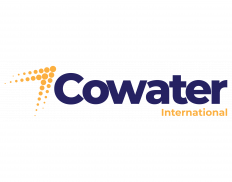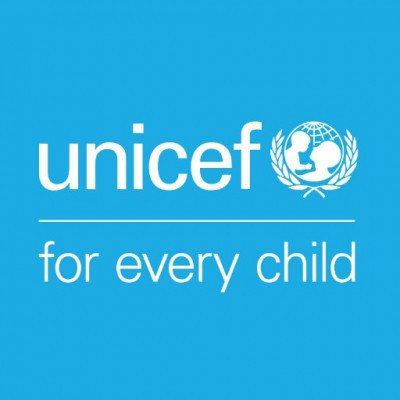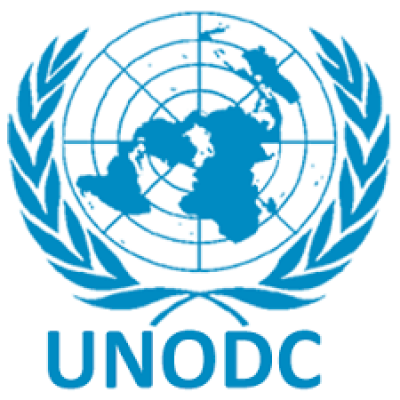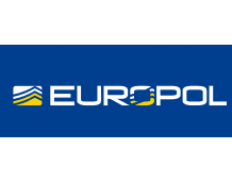Details
Description
The EU is funding the JPP Phase II and it is expected that other donors will also join the programme although it is expected that the funding for this new phase will be much smaller. The proposed JPP2 goal at the DSC was “Improved security and protection of local communities” with the objective to “Develop effective and accountable federal and state police services for improved policing”. JPP2 will concentrate on police deployment and reform of the police forces across Somalia. General priority areas and activities for JPP2 were defined under the below thematic priorities:
- Support to national stabilisation strategy;
- Strengthened legal and policy frameworks;
- Improved policing strategy, organisation, and structure;
- Improved staffing, including recruitment, equipment, training, leadership, deployments, compensation;
- Strengthened police integrity and accountability;
- Improved local (district) policing delivery;
Improved community cooperations and trust;
Project stakeholders insisted that the future management structure should enhance coordination, accountability and offer a more strategic direction and oversight with a more robust decision-making process. The project stakeholders will agree on results and resources framework and a multi year workplan during the inception phase of the project which is from January to April 2024.
The Project represents a joint approach with the United Nations Mission in Somalia (UNSOM) and the UN Country Team to strengthen collaboration, focus and coherence to support the implementation of the priorities in police development in Somalia and it builds on the positive gains, experience, expertise and added value of relevant UN partners under the Global Focal Point Arrangement to advance rule of law and constitutes a key landmark to maximize impact of UN interventions, minimize overlapping activities and maximize UN MPTF resources and know-how of the UN to “deliver as one” to enhance justice and security for all Somalis. The Project framework shall ensure collective UN action on capacity building, gender equality and human rights principles as cross-cutting issues of this approach.
Position Purpose
It is in this context that UNDP Somalia is recruiting a Project Team Leader to implement the Joint Police project and related components of the Rule of Law portfolio. Under the guidance and direct supervision of the Portfolio Manager Rule of Law and Security, the Police Project Team Leader is responsible for the management of the JPP Phase II with regards to implementation of the activities agreed in the Work Plan of the project with participating UN Agencies. S/he will develop and coordinate efforts to develop and strengthen the police in Somalia.
UNDP adopts a portfolio approach to accommodate changing business needs and leverage linkages across interventions to achieve its strategic goals. Therefore, UNDP personnel are expected to work across units, functions, teams, and projects in multidisciplinary teams in order to enhance and enable horizontal collaboration.
- Regularly organize discussions with the key government focal persons of Federal Government of Somalia (FGS) and Federal Member States (FMS) to provide project updates.
- In consultation with UNDP, participating UN Agencies, UNSOM and other colleagues as applicable, develop annual work plans and execute programme activities, applying results-based management tools and adaptive management approaches.
- Ensure adherence to the project work plan in line with the Project Document, and overall Rule of Law portfolio of UNDP, and ensure synergies with other donor funded initiatives focused on police development and the broader Rule of Law.
- Establish and maintain sound partnerships with the Somali authorities and partners, donors and other strategic partners; and continuously liaise with project partners and donors to harness political, technical and financial support to the police development sectors.
- Ensure adequate information flow, discussions and feedback among the various stakeholders according to the agreed management arrangements.
- Prepare regular progress reports in line with reporting schedule, as well as any other reports requested by UNDP, donors, Government and or other stakeholders.
- Monitor the project expenditures, commitments and balance of funds under the programme budget lines, and draft programme budget revisions in accordance and cooperation with UNDP’s QUANTUM system including the reporting on programme funds and related record keeping.
- Ensure timely recruitment and procurement of quality services and equipment and also implementation of programme activities in line with applicable rules, regulation and standards.
- Represent the programme at the Steering Committee meetings, technical meetings and other appropriate fora in coordination with UNDP.
- Undertake regular monitoring visits to project sites and produce monitoring reports;
- Ensure Harmonized Approach to Cash Transfer (HACT) compliance of implementing partners and work closely with the Policy Operations and Quality Assurance (POQA) of UNDP Country Office.
- Ensure project documents are in compliance with UNDP policies and procedures and undertake reporting on Project progress and constraints to donors, UN partners and government;
- Ensure the preparing and maintaining of spreadsheets of project activities;
- Facilitate police meetings and missions;
- Effective application of RBM tools, establishment of management targets and monitoring achievement of results;
- Follow up on audit recommendations.
- All exceptions are timely reported.
Provide Policy and Technical Advice:
- Consult any new plans with the government institutions at FGS, FMS and the donors prior to the implementation of the new plans.
- Propose and assist in the development of legal framework for transparent decision-making;
- Introduce concepts on accountability systems, grievance redressal mechanisms (internal and external) and enforcement of law enforcement decisions;
- Provide advice on the formulation of police manual for police officers;
- Provide advice and examples of gender sensitive policing strategies;
- Provide technical advice to strengthen Somali police institutions, including developing indicators for measuring improvements;
- Facilitate the development of mechanisms and procedures to ensure that the selection and appointment of police is based on professional, merit-based criteria in a transparent and independent process, which represents the diversity of the country.
- Provide technical and advisory support to the Police Training Academies in identifying training needs of police and formulate training curricula and modules tailored to address specific needs;
- Provide substantive inputs and support to the Police Training Academies in monitoring and evaluating training curricula;
- Develop strategies for mechanisms to improve the monitoring and enforcement of decisions within the police organizations;
- Develop capacity of FGS and FMS government officials in developing laws, regulations and policies in support to the strengthening of police;
- Contribute to the development of standards of performance and internal regulations for the police.
- Technical support in designing national policies, strategies and regulatory frameworks to enhance the quality of services.
- Support the positioning of UNDP Somalia as an operational thought leader in the police and security domain jointly with UNSOM, to national partners as well as the international community/donors.
- Strengthen and/or develop new partnerships with civil society and/or non-governmental/ community-based organizations; local communities and other potential allies to enhance project quality and achieve and deliver the outputs and activities.
- Establish and maintain sound partnerships with the Government, donors and other strategic partners.
- Ensure that project implementation is closely coordinated with UNSOM, stakeholders and that a high level of collaboration and cooperation is in place at the national, Federal Member State and local/community levels.
- Liaise with other relevant government actors and partners/stakeholders, as well as UN/DP colleagues regarding the project, including to share information about trends, issues and results, to coordinate and utilize resources effectively and efficiently.
- Proactively identify potential sources of funding and assist in resource mobilisation for the project expansion/future phases through development of concept notes and funding proposals to the potential donors and promoting project deliverables at the relevant development platforms.
- Ensure regular communication on project results, including producing communication products and visibility on social media.
- As required, represent the project in national/international fora/discussions on the police.
- Consult with the government leading focal persons and donors to develop capacity development plans and knowledge products.
- Identify sources of information related to capacity development of the police, and lessons learned directly linked to the rule of law joint programmes in Somalia;
- Sound contributions to knowledge networks and communities of practice;
- Organize trainings for the key partners on police development issues;
- Coordinate development of Policies and institutions in relation to police and capacity development needs in collaboration with the Government and other strategic partners;
- Facilitate knowledge building and management of the Police project team members and national counterparts;
- Analyze results/lessons learned, and provide strategies for improved delivery of project interventions;
- Ensure project lessons learned and best practices are captured and documented to inform wider policies and programmes.
- Promote women's empowerment in the police at the FGS and FMS
- Design and advise on improving women’s access to policing services.
- Work with UNWOMEN Somalia to develop user friendly standard Operating procedures and guidance tools for the police personnel to address Sexual and Gender Based Violence clients.
- Core Competencies:
Achieve Results: LEVEL 3: Set and align challenging, achievable objectives for multiple projects, have lasting impact.
Think Innovatively: LEVEL 3: Proactively mitigate potential risks, develop new ideas to solve complex problems.
Learn Continuously: LEVEL 3: Create and act on opportunities to expand horizons, diversify experiences.
Adapt with Agility: LEVEL 3: Proactively initiate and champion change, manage multiple competing demands
Act with Determination: LEVEL 3: Think beyond immediate task/barriers and take action to achieve greater results.
Engage and Partner: LEVEL 3: Political savvy, navigate complex landscape, champion inter-agency collaboration.
Enable Diversity and Inclusion: LEVEL 3: Appreciate benefits of diverse workforce and champion inclusivity.
- Cross Functional and Technical Competencies:
Technical Competency - Rule of Law: Solid background in policing, community security and rule of law and justice.
Business Direction and Strategy - Negotiation and Influence: Ability to reach an understanding, persuade others, resolve points of difference, gain advantage in the outcome of dialogue, negotiates mutually acceptable solutions through compromise and creates ‘win-win’ situations.
Business Management - Portfolio Management: Ability to select, prioritize and control the organization’s programmes and projects, in line with its strategic objectives and capacity; ability to balance the implementation of change initiatives and the maintenance of business-as-usual, while optimizing return on investment.
Business Direction & Strategy - System Thinking: Ability to use objective problem analysis and judgement to understand how interrelated elements coexist within an overall process or system, and to consider how altering one element can impact on other parts of the system.
Business Management - Partnerships Management: Ability to build and maintain partnerships with wide networks of stakeholders, Governments, civil society and private sector partners, experts and others in line with UNDP strategy and policies.
2030 Agenda: Prosperity - Recovery Solutions and Human Mobility: Forced Displacement, incl. Durable Solutions.
2030 Agenda: Prosperity - Recovery Solutions and Human Mobility: Reintegration (refugees/IDPs).
Advanced University degree (master’s degree or equivalent) in Law, Public Administration, International Relations, Social Sciences or relevant related fields is required. OR
A first-level university degree (bachelor’s degree) in combination with an additional two years of qualifying experience will be given due consideration in lieu of the advanced university degree.
- Minimum of seven (7) years (with Master’s degree) or nine (9 ) years (with a bachelor’s degree) of professional experience in one of the fields related to police organizational development, police reform applying people-centred approaches, as well as the rule of law in general is required;
- Proven experience in joint programmes (and Global Focal Point approaches) and promoting women's empowerment in the police and women’s access to policing services is required.
- Demonstrated experience in conducting technical consultation and facilitation of national and international networks is an asset.
- Demonstrated experience in the implementation of police reforms programs and projects, including the supervision of technical staff is an asset.
- asset.Previous work experience with the United Nations (preferably UNDP) at the strategic, programmatic and technical levels is an
- Experience in crisis or post-crisis context is a major advantage.
- Demonstrated experience to work in an institutional setting with high-level officials as well as with civil society organizations and local level leaders is an asset.
- Proficiency in oral and written English is required.
- Working Knowledge of another UN language will be an asset.





